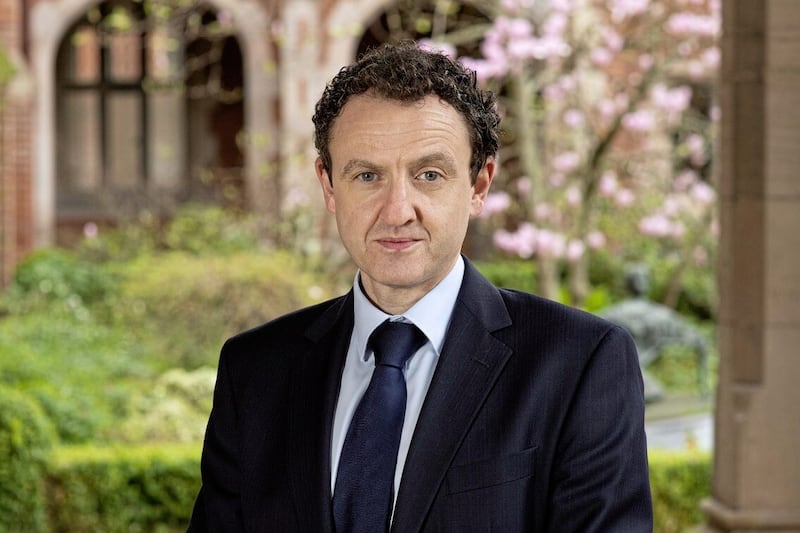The single greatest factor contributing towards the culture of instability at Stormont remains political unionism’s unwillingness to commit to a vision for the future, embracing genuine equality and parity of esteem for the main traditions and people that share Northern Ireland.
Unionism’s opposition to equality continues to manifest itself in a variety of ways.
The Irish Language Act, first pledged fifteen years and four DUP leadership changes ago, still has not been delivered by the British government. Doubts continue to linger as to whether or not the British secretary of state, Brandon Lewis, will honour his pledge publicly made a few months ago - in the face of fierce unionist opposition - that the British government are committed to introducing legislation to make that happen, albeit as part of a wider cultural package. Whilst Sinn Féin’s deputy leader, Michelle O’Neill, attempted recently to reassure language speakers as to the British government’s intentions, the fact the timescale outlined by Lewis has already slipped is disconcerting not least given successive British governments' failure to deliver on a pledge first made in the St Andrews Agreement.
As of yet, no unionist political leader has publicly committed to continue in a power-sharing executive in the event of the electorate determining that the post of first minister will go to Sinn Féin.
In the House of Commons last month, Ian Paisley Junior decried that there had not been a unionist justice minister since the 1970s. That is simply not true, as Claire Sugden served as justice minister prior to Stormont’s collapse in 2017.
The North Antrim MP also neglected to mention it was at the DUP’s insistence that the arrangements for the appointment of the justice ministry were kept apart from d’Hondt a decade ago because they did not want a nationalist to hold that position.
Calling our problem for what it is remains beyond many.
Those seeking to woo pro-Union voters to non-constitutionally aligned political parties won’t call it out because they worry plain language may offend and prove costly when the votes are counted. That is why the Alliance Party and Greens refused to support proposals to licence bonfires at Belfast City Council in October. Like politicians everywhere, self-preservation triumphed and the high ground oft-claimed by those positioned in the constitutional no man’s land of our politics quickly abandoned.
In the assembly last week, Sinn Féin’s Emma Sheerin accused the DUP of opposing the appointment of an individual, believed to be the renowned professor of human rights law, Colin Harvey, to the panel of experts to provide advice on a bill of rights.
Following the revelation, Amnesty International’s Patrick Corrigan tweeted that Harvey “is a leading authority on constitutional and human rights law and the NI Bill of Rights.”
Colin Harvey’s CV would suggest there are few people in these islands as qualified to serve on a panel exploring a bill of rights for this region. He is a Professor of Human Rights Law in the School of Law at Queen’s, has served as Head of the Law School, Director of the Human Rights Centre and also served for two terms on the Northern Ireland Human Rights Commission, in addition to many more roles rendering him more than qualified to claim expert status.
Of course, Harvey is also a prominent advocate of Irish unity as well as being a distinguished authority on constitutional and human rights law.
He has spoken before of the campaign of political pressure he has faced since publicly outlining his constitutional preferences. Two years ago, he revealed that leading unionist politicians - including the UUP’s Steve Aiken - had contacted his employers, Queen’s University, to demand to know if they supported his work on planning for constitutional change.
The dots virtually connect themselves.
By contrast, consider this.
Pete Shirlow is a prominent professor at the University of Liverpool, Director of the Institute of Irish Studies and a commentator on NI affairs. Like Colin, he is well-respected, affable and correctly viewed as an authoritative figure in his field of expertise. I have had the pleasure of working with both in different capacities over recent years and can attest to the sincerity of their endeavours and professional integrity.
Shirlow also happens to be avowedly pro-Union and was recently confirmed to be a member of the British government-established Castlereagh Foundation Advisory Committee, alongside Arlene Foster.
Far from seeking to exclude or marginalise him, Shirlow’s pro-Union background and expertise is the reason why he has rightly been invited to speak on platforms organised by Feile an Phobail over the years in addition to many other unionist commentators, politicians and former loyalist paramilitaries. In 2019, this included a panel exclusively of pro-Union commentators, including Shirlow, to discuss their vision for the future in an event held at St Mary’s University College on the Falls Road.
That’s how it should be.
The legislation the Tory government is currently guiding through Westminster will make it harder to collapse the Stormont institutions, as was set out in the New Decade New Approach document, but it can’t and won’t deliver stability. For that we must await a new unionism open to partnership, embracing accommodation, mutual respect and parity of esteem.
Whether that is possible this side of constitutional change, we will have to wait and see.








